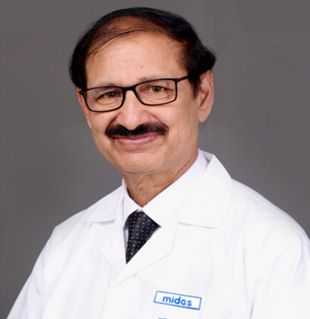Department of Internal Medicine
The Department of Internal Medicine is a key department in hospitals and healthcare institutions that focuses on the diagnosis, treatment, and prevention of a wide range of medical conditions and diseases in adults. Internal medicine physicians, also known as internists, are medical doctors who specialize in providing primary care and managing complex medical problems in adult patients. Here are some key aspects of the Department of Internal Medicine:

Comprehensive Care: The Department of Internal Medicine provides comprehensive medical care for adults, addressing a broad spectrum of health issues, from common illnesses and chronic diseases to complex medical conditions.
Primary Care: Internists often serve as primary care physicians, which means they are usually the first point of contact for adults seeking medical care. They provide routine check-ups, preventive care, and manage chronic conditions, such as diabetes, hypertension, and heart disease.
Diagnosis and Treatment: Internists are trained to diagnose and treat a wide variety of medical conditions, including infections, respiratory diseases, gastrointestinal disorders, autoimmune diseases, endocrine disorders, and neurological conditions, among others.
Chronic Disease Management: They play a crucial role in managing chronic diseases like diabetes, hypertension, arthritis, and asthma. They work with patients to develop treatment plans, monitor their progress, and adjust therapies as needed.
Inpatient and Outpatient Care: Internal medicine physicians work in both inpatient settings (hospitals) and outpatient settings (clinics or private practices). In the hospital, they often manage patients with acute illnesses and coordinate care with other specialists when necessary.
Preventive Medicine: Internists emphasize preventive medicine, including vaccinations, cancer screenings, lifestyle counseling (e.g., diet and exercise), and risk factor reduction to help patients maintain and improve their overall health.
Geriatrics: Some internists specialize in geriatric medicine, which focuses on the unique healthcare needs of older adults. They address age-related conditions, cognitive disorders, and end-of-life care.
Subspecialties: Internal medicine has several subspecialties that require additional training. Common subspecialties include cardiology (heart diseases), gastroenterology (digestive disorders), nephrology (kidney diseases), pulmonology (lung diseases), rheumatology (autoimmune and inflammatory diseases), and endocrinology (hormone disorders), among others.
Continuity of Care: Internists often establish long-term relationships with their patients, providing ongoing care and addressing a wide range of medical concerns throughout a patient's life.
Medical Education and Research: Many internal medicine departments are involved in medical education and research activities, training medical students, residents, and fellows, as well as conducting clinical research to advance medical knowledge.
Patients are typically referred to specialists within the Department of Internal Medicine when their conditions require more specialized care or diagnosis. The department's primary goal is to provide comprehensive and patient-centered medical care, with an emphasis on disease prevention, early detection, and effective management of medical conditions in adult patients.
Specialists























